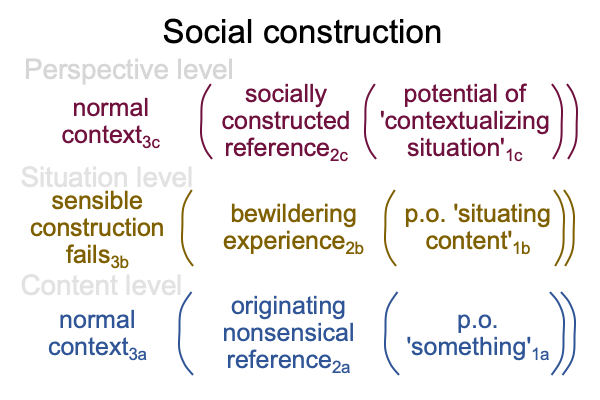0124 The ninth primer concerns classical political philosophy.
What do classical philosophers talk about?
Well for one (1), they ask people for their opinions and for two (2), they try to figure out what is really going on,concerning the topic of opinion.
0125 The first (1) involves a strange game, concerning the difference between sensible and social constructions. Most people regard their opinions as sensible constructions, in the same way that they regard their spoken words as real.
A spoken word labels an artifact that validates the… um… spoken word. So, opinions are sensible in so far as artifacts validate them.
0126 That is where the second (2) comes on stage. What happens when artifacts no longer validate their words? Or, even more unsettling, what happens when the origin of opinions is social, rather than sensible construction?
Where have I heard that idea before?
0127 Now, I want to discuss one small section of the ninth primer, in order to explore a referral from classical political philosophy back to the distinction between sensible and social construction in the second primer.
0128 Here is a general picture of social construction.

0129 Note the virtual nested form in the realm of actuality.
A perspective-level socially constructed reference2c brings the actuality of a bewildering experience2b into relation with a content-level originating reference2a.
I shorten this nested form into a coherent whole with the label, “a reference2c constructed3b on a reference2a“.
Here, the term, “constructed3b“, points to the failure of sensible construction and the triggering of social construction.
Also, the entire label has the character of secondness, the realm of actuality, when social construction really has the character of thirdness, the realm of triadic relations.
Unwittingly, my label changes categories.
0130 In the next blog, I will apply this pattern to one of my cherished opinions.
Wine is the nectar of the gods.
